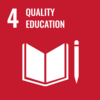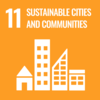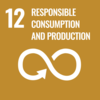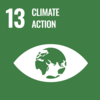Across our three themes: Learning & Teaching, Environment & Operations, and People and Behaviours, every year, we’re providing our colleagues, students, and external stakeholders with a detailed, transparent update on progress against our institutional sustainability goals.
These goals are simple, specific, and measurable. Therefore, while this annual process is an opportunity to engage our people in our shared effort to addresses the challenges of sustainable development and to celebrate the initiatives, projects and programmes that have made a difference, at a time when the public is becoming distrustful of greenwashing, it’s also a mechanism by which the University’s progress can be fully scrutinised and its executive team held to account for the delivery of its sustainability targets.
URL to access our latest sustainability report or sustainability section(s) of our annual report:
https://www.falmouth.ac.uk/sustainability#sustainability-report
The judges were impressed with an engaging report, visually appealing, easy to read that drew the audience in. It covered all the bases well, clear Governance, key risks and opportunities identified, references to stakeholders and different groups that are linked to the institution. Well done.
"Working with the creatives, innovators and entrepreneurs of the future, universities have a unique responsibility to lead the way on environmental and sustainability issues. We must be ambitious in our actions and transparent in our communications. As a specialist creative institution, it’s particularly fantastic to be recognised for our sustainability reporting."
Professor Emma Hunt, Vice Chancellor



